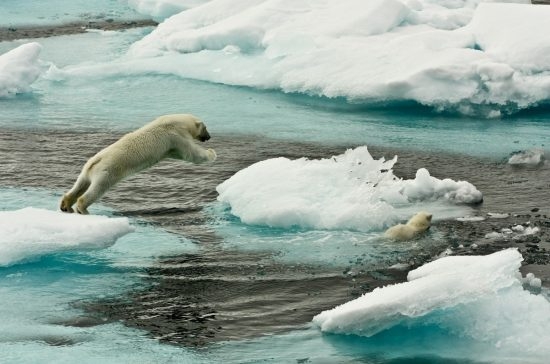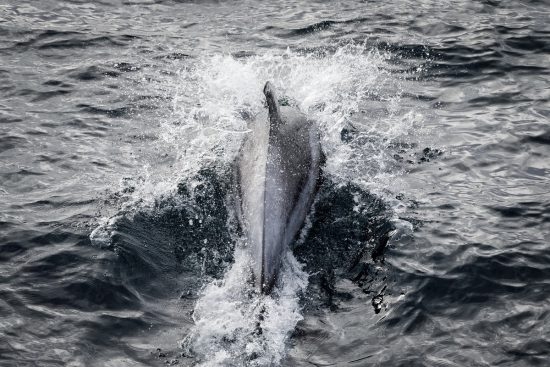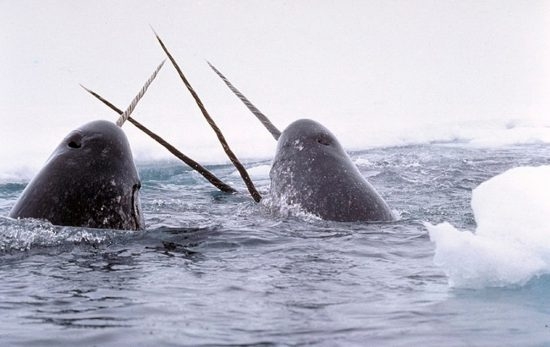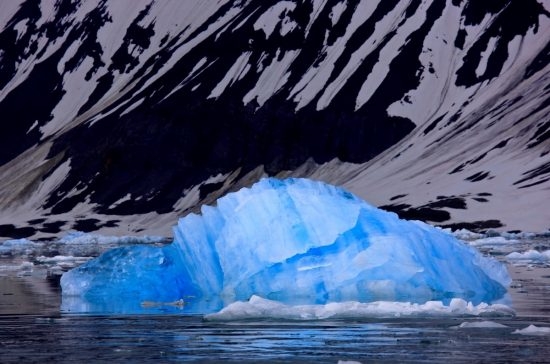
© A polar bear mother and her young. Polar bear mother jumping on sea ice, young animal swimming,north of Svalbard. (c) Larissa Beumer

© White beaked dolphin in the Barents sea viewed from the deck of the Esperanza. (c) Nick Cobbing

© Narwhals breaching in icy waters in the US. (c) Glenn Williams

© The Hornsund Fjord on Svalbard/Spitzbergen. Birds sitting on an iceberg. (c) Bernd Roemmelt
Major companies say “no” to cod fishing in previously ice-covered Arctic waters
May 30, 2016
Some major food companies and retailers, like Iglo and McDonald's, have signed a commitment with Greenpeace on 25 May 2016 to halt further expansion of their Arctic cod fishing operations into the areas of the Norwegian Arctic that had been previously covered by ice.
This is the first time the industry has voluntarily imposed limits on their own fishing operations in the Arctic. The commitment applies to an area in the northern Barents Sea which is about twice the size of France. Based on the agreement, any company that obtains their fish stocks from this area would not be able to sell their cod to the signatories of the agreement.
"This is an unprecedented step and extraordinary success directed towards the protection of a large marine area in the Arctic," said Greenpeace's arctic expert Larissa Beumer in German.
"The Norwegian government has so far failed to protect these waters. They must now catch up with the companies and place the area permanently under legal protection," she continued.
Currently, the marine areas that had been originally covered by ice (which has since melted) are not protected by law. According to a Greenpeace report from March 2016, industrial fishing fleets with trawl nets have penetrated into these remote regions of the Arctic. The waters around the Svalbard Islands are home to cold-water corals, beluga, fin and bowhead whales, polar bears, walruses and some of the world's largest colonies of seabirds such as puffins and guillemots. The trawl nets of fishing fleets drag along the sea bed, severely damaging it, and this leads to serious consequences for the entire ecosystem.
Fiskebåt (Norwegian Fishing Vessel Owners Association) has declared its commitment to the agreement. Some of the companies on board include Iglo, Birds Eye, Findus, Young's Seafood, Icelandic Seachill and Espersen. The world's third largest retail chain Tesco and the fast-food chain McDonald's have also joined the agreement.
About 70 percent of the world's Atlantic cod sold comes from the Barents Sea. Beumer added that Greenpeace would be present to monitor the fishing areas to ensure that the terms of the agreement are adhered to.